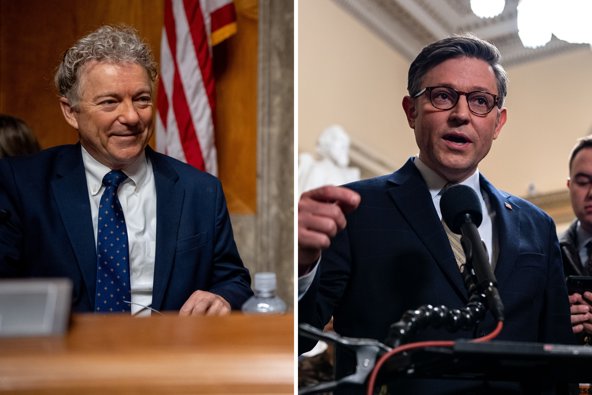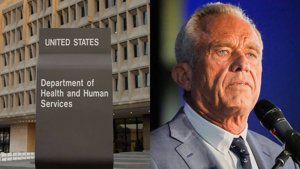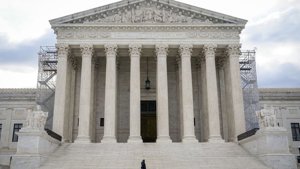
Johnson, Paul Clash Over Trump Debt Deal
Speaker Mike Johnson and Senator Rand Paul clashed over President Trump’s fiscal bill, with both Republicans taking sharply different views on national debt and economic risk.
Dispute Centers on Debt Ceiling and Spending
House Speaker Mike Johnson defended President Donald Trump’s proposed fiscal legislation on Sunday, pushing back against criticism from Senator Rand Paul, who dismissed the spending cuts in the bill as “wimpy.”
Appearing on national television, Johnson stressed that the inclusion of a debt ceiling increase is necessary to avoid a catastrophic default. “We’re not going to get any Democrats to assist,” Johnson said, arguing that extending the debt ceiling must be part of the reconciliation process. “That’s why President Trump and all the other Republicans in Congress, House and Senate, understand the necessity of this.”
Paul, however, appeared on the same program later in the broadcast and remained unconvinced. While supporting the extension of Trump-era tax cuts and the principle of spending cuts, he described the current reductions as “anemic.” Paul warned that the bill’s math doesn’t work and that it would add trillions to the national debt.
“I support spending cuts. I think the cuts currently in the bill are wimpy and anemic, but I still would support the bill if they weren’t going to explode the debt,” Paul stated. “The House’s version adds $4 trillion. The Senate’s proposal is talking about adding $5 trillion. I can’t vote for that.”
Paul Proposes Alternative Debt Solution
As an alternative, Paul advocated for raising the debt ceiling in smaller, more frequent increments—suggesting a three-month extension or a $500 billion cap at a time. This approach, he argued, would force congressional leadership to regularly address the national debt and prevent unchecked growth.
“There’s got to be someone left in Washington who thinks debt is wrong and deficits are wrong and wants to go in the other direction,” Paul emphasized.
Paul went further, calling the federal deficit the most significant national security threat facing the United States today. “I think it’s the greatest threat to national security,” he said. “And so I think you can’t do this.”
The ongoing disagreement highlights growing divisions within the Republican Party over how to address fiscal policy under Trump’s leadership. While Johnson emphasized economic stability and avoiding default, Paul warned that financial complacency could prove even more dangerous in the long run.






